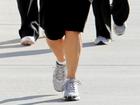Two Americans and a Swede have won this year's Crafoord Prize, a 4 million kronor ($600,000) scientific award given by the Royal Swedish Academy of Sciences to honor achievements not always covered by its more famous Nobel Prizes.
Peter Gregersen of the Feinstein Institute for Medical Research near New York, Robert Winchester of Columbia University and Lars Klareskog of Stockholm's Karolinska institute were cited for discoveries related to rheumatoid arthritis.
 Full Story
Full Story
A controversial birth control law came into effect in the Philippines Thursday after more than a decade of bitter opposition from the Catholic church, in an historic move welcomed by many women.
The law requires government health centers to hand out free condoms and birth control pills, benefiting the country's poor who would not otherwise have access, and mandates that sex education be taught in schools.
 Full Story
Full Story
A large study offers reassuring news for pregnant women: It's safe to get a flu shot.
The research found no evidence that the vaccine increases the risk of losing a fetus, and may prevent some deaths. Getting the flu while pregnant makes fetal death more likely, the Norwegian research showed.
 Full Story
Full Story
A new government survey suggests the number of people seeking emergency treatment after consuming energy drinks has doubled nationwide during the past four years, the same period in which the supercharged drink industry has surged in popularity in convenience stores, bars and on college campuses.
From 2007 to 2011, the government estimates the number of emergency room visits involving the neon-labeled beverages shot up from about 10,000 to more than 20,000. Most of those cases involved teens or young adults, according to a survey of the nation's hospitals released late last week by the Substance Abuse and Mental Health Services Administration.
 Full Story
Full Story
Cuba's second cholera outbreak in four months -- after 130 years without the disease -- has sickened more than 50 people and killed one in Havana, authorities and the family of the deceased said Tuesday.
The latest outbreak was from the same cholera strain found to have been introduced in Haiti by Nepalese U.N. peacekeepers, unleashing an epidemic in 2010 that has killed some 7,900 people.
 Full Story
Full Story
Women who suffer from migraines accompanied by visual disturbances such as flashes of light may be at increased risk of heart attacks and blood clots, researchers said Tuesday.
The study involved 27,860 women, of whom 1,435 had migraine with aura, as such disturbances are called.
 Full Story
Full Story
An Australian scientist said Wednesday he had discovered how to turn the HIV virus against itself to stop it progressing to AIDS, describing it as a major breakthrough in finding a cure for the disease.
David Harrich, from the Queensland Institute of Medical Research, said he had successfully modified a protein in HIV that the virus needed to replicate and instead made it "potently" inhibit virus growth.
 Full Story
Full Story
Cuba's Public Health Ministry on Tuesday acknowledged 51 new cases of cholera in the capital amid growing concerns about the illness' spread and disappointment in the diplomatic community over the government's lack of transparency.
The ministry said nobody had died from the latest outbreak, which began Jan. 6, and stressed that preventive measures already taken had put the disease "on the way to extinction." It said cholera was first detected in the capital's Cerro neighborhood, and then spread elsewhere. No other areas of the capital were mentioned, but there have been unconfirmed reports of cases in the leafy Playa neighborhood that is home to many foreign embassies.
 Full Story
Full Story
Britain's National Health Service may soon offer women at high risk of developing breast cancer drugs normally used to treat the disease as a prevention strategy.
The National Institute for Health and Clinical Excellence Tuesday announced draft guidelines that would make the drugs available.
 Full Story
Full Story
China has cleaned up its air before but experts say if it wants to avoid the kind of smog that choked the country this week, it must overhaul an economy that is fueled by heavily polluting coal and car use.
Several days of hazardous air quality across large swathes of northern China triggered an emergency response which saw schoolchildren kept indoors, factories closed and government cars parked.
 Full Story
Full Story



